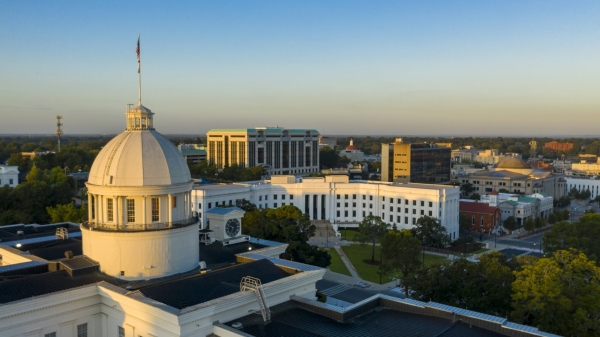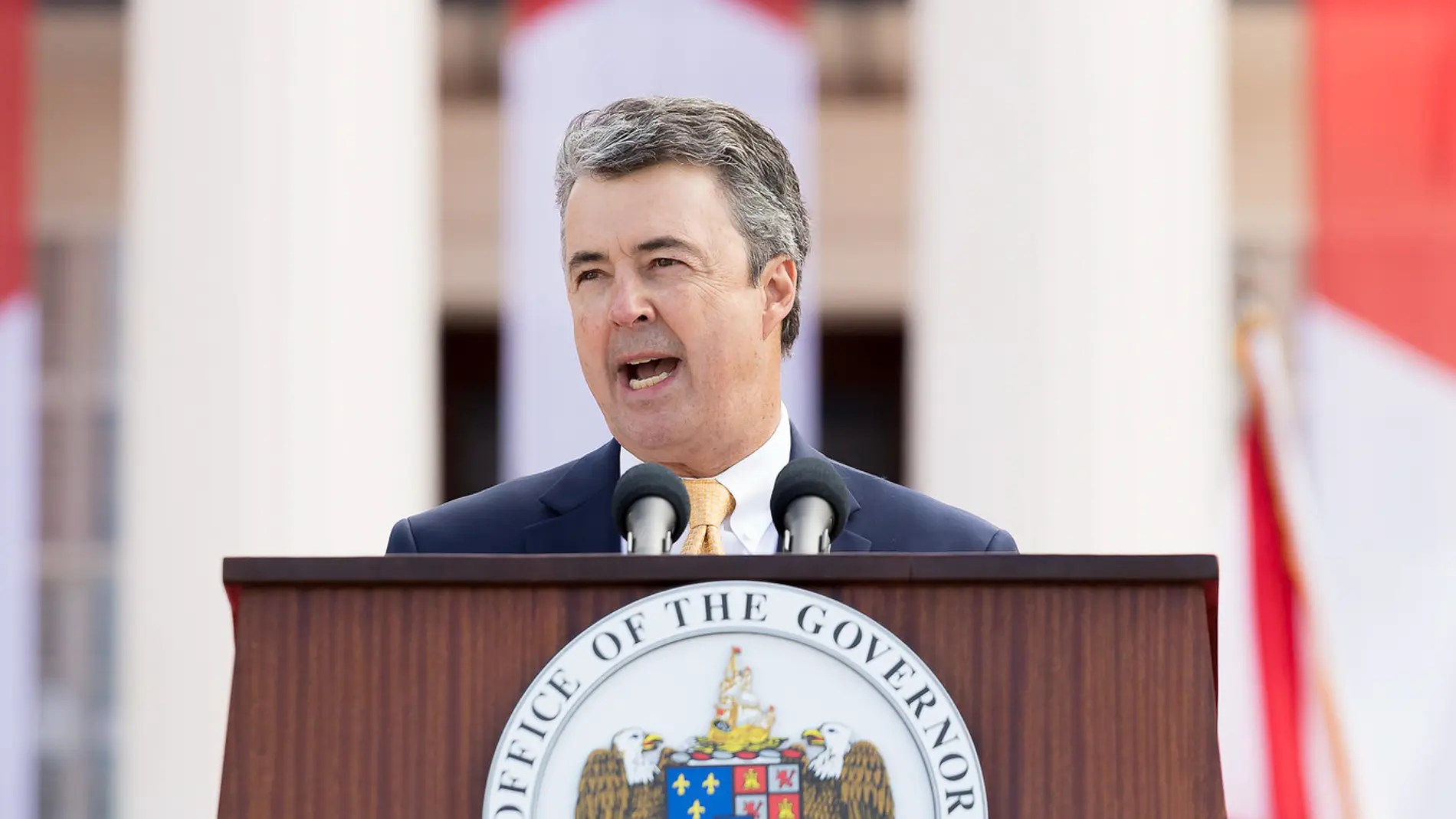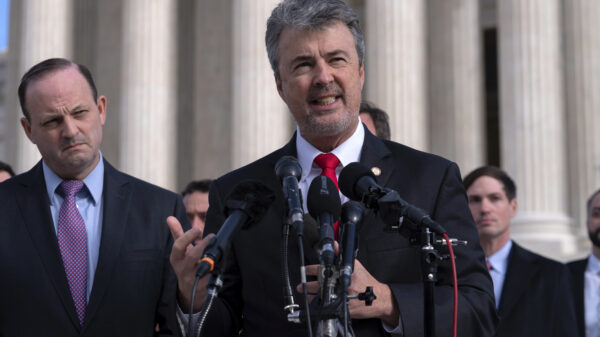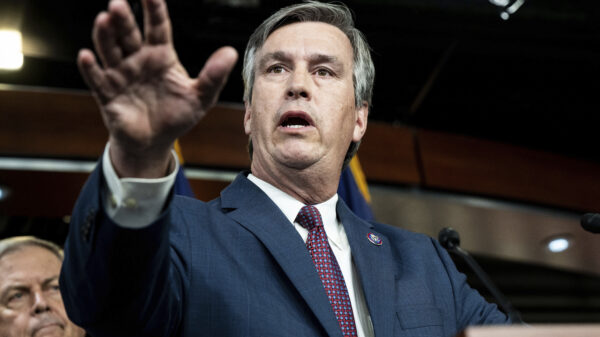Alabama Attorney General Steve Marshall signed onto a letter from a group of attorneys general sent last Friday condemning a push to impose carbon emission standards on financial institutions.
The letter, led by Iowa Attorney General Brenna Bird, and sent to David Kennedy, CEO of the Science Based Targets initiative, was endorsed by Marshall alongside attorneys general from an additional 22 states.
SBTi is a collaborative initiative aimed at curbing businesses’ carbon emissions to align with emission reduction goals set forth by the Paris Climate Agreement.
The initiative is a partnership between emissions disclosure nonprofit CDP, the United Nations Global Compact, the World Resources Institute, the World Wide Fund for Nature and the We Mean Business Coalition.
The organization released a guide in July for banks and investors to achieve net-zero emissions, entitled Financial Institutions Net Zero Standard.
The Financial Institutions Net Zero Standard aims to aid partnered financial institutions “in addressing their most significant climate impact through alignment and sector-specific targets.” The document suggests members take actions such as stopping or limiting their investments in fossil fuel expansion projects, as well as addressing deforestation risks in their existing investments.
The organization released its Corporate Net-Zero Standard in 2023, which, according to SBTi, “is the world’s only framework for corporate net-zero target setting in line with climate science.”
Currently, over 12,000 businesses have set emission targets through SBTi recommendations.
The attorneys general argued the newly released standards could run afoul of state and federal laws that limit environmental, social and governance-focused investment strategies.
The letter cites that 18 states have enacted anti-ESG laws that could affect companies that engage with SBTi’s standards.
According to the law firm Morgan Lewis, in 2023, 20 states had enacted “anti-ESG” rules, aimed at limiting considerations of ESG factors in investments.
Alabama passed legislation in 2023 that prohibited government entities from entering into certain contracts with companies that “boycott businesses because the business engages in certain sectors or does not meet certain environmental or corporate governance standards.”
SBTi’s recommendations were also criticized by the attorneys general for potentially violating federal and state antitrust laws and constituting an illegal boycott.
The letter cites that the Federal Trade Commission has determined “horizontal agreements[s] to restrict output… that had no countervailing efficiencies that would benefit consumers” to be unlawful.
Marshall’s office argued that SBTi-partnered U.S. businesses risk “hurting Americans through higher energy, food, and development costs” by complying with the guide’s standards.
“SBTi’s members include nationwide businesses. They are targeting oil-and gas-related businesses, which also affects agriculture and any industry that requires energy,” Marshall’s office wrote.
“For years, radical activist groups have sought to pressure the financial sector into imposing their ideological agenda on hardworking, productive industries. American agriculture stands as the global gold standard for quality and efficiency, feeding not just Americans but countless others around the world,” Marshall said.
“Ideological assaults, driven by a well-funded climate cabal, have been repeatedly exposed by our coalition of attorneys general. We will not stand by as they attempt to undermine American values, sabotage capitalism, and strangle our economic backbone,” he continued.
Marshall has consistently been a vocal critic of ESG investment policies.
The attorney general has joined multi-state lawsuits against Vermont’s Climate Superfund Act, and against investment companies BlackRock, Vanguard and State Street over the organizations’ efforts to pressure carbon emission reductions among coal companies.
In January, Marshall also celebrated Wells Fargo and Company’s withdrawal from The Net-Zero Banking Alliance, a UN-convened group of global banks committed to reaching net-zero greenhouse gas emissions in their investment portfolios and market activities by 2050.
The letter requested that Kennedy provide documentation of all communications between himself and SBTi members related to climate commitments, including how these commitments are to be met, as well as all communications between Kennedy and organization members on how the Financial Institution Net-Zero Standards were developed.
The letter also requested a description of SBTi’s core funding sources, descriptions of the relationship between SBTi and member organizations and a list of which insurance companies are actively working within SBTi’s framework to reduce emissions.
Statements from insurers on how SBTi or other organizations have influenced their decision to reduce emissions were also requested, alongside information on how insurers are working to reach their goals, including, “whether [they refuse] to insure or reinsure certain individuals or entities based on these goals.”
Alongside Marshall and Bird, the letter was cosigned by attorneys general from Alaska, Arkansas, Florida, Georgia, Idaho, Indiana, Kansas, Louisiana, Mississippi, Missouri, Montana, Nebraska, North Dakota, Oklahoma, South Carolina, South Dakota, Tennessee, Texas, Virginia, West Virginia and Wyoming.
The letter followed Florida Attorney General James Uthmeier’s announcement in late June that he would issue subpoenas to SBTi and CDP.
A press release from Uthmeier said the attorney general’s investigation into the organizations will look into whether or not they have violated state anti-trust and consumer protection laws “by coercing companies into disclosing proprietary data and paying for access under the guise of environmental transparency.”
“Florida will not sit back while international pressure groups shake down American companies to fund their ESG grift,” Uthmeier said. “We’re using every tool of the law to stop the Climate Cartel from exploiting businesses and misleading consumers.”















































